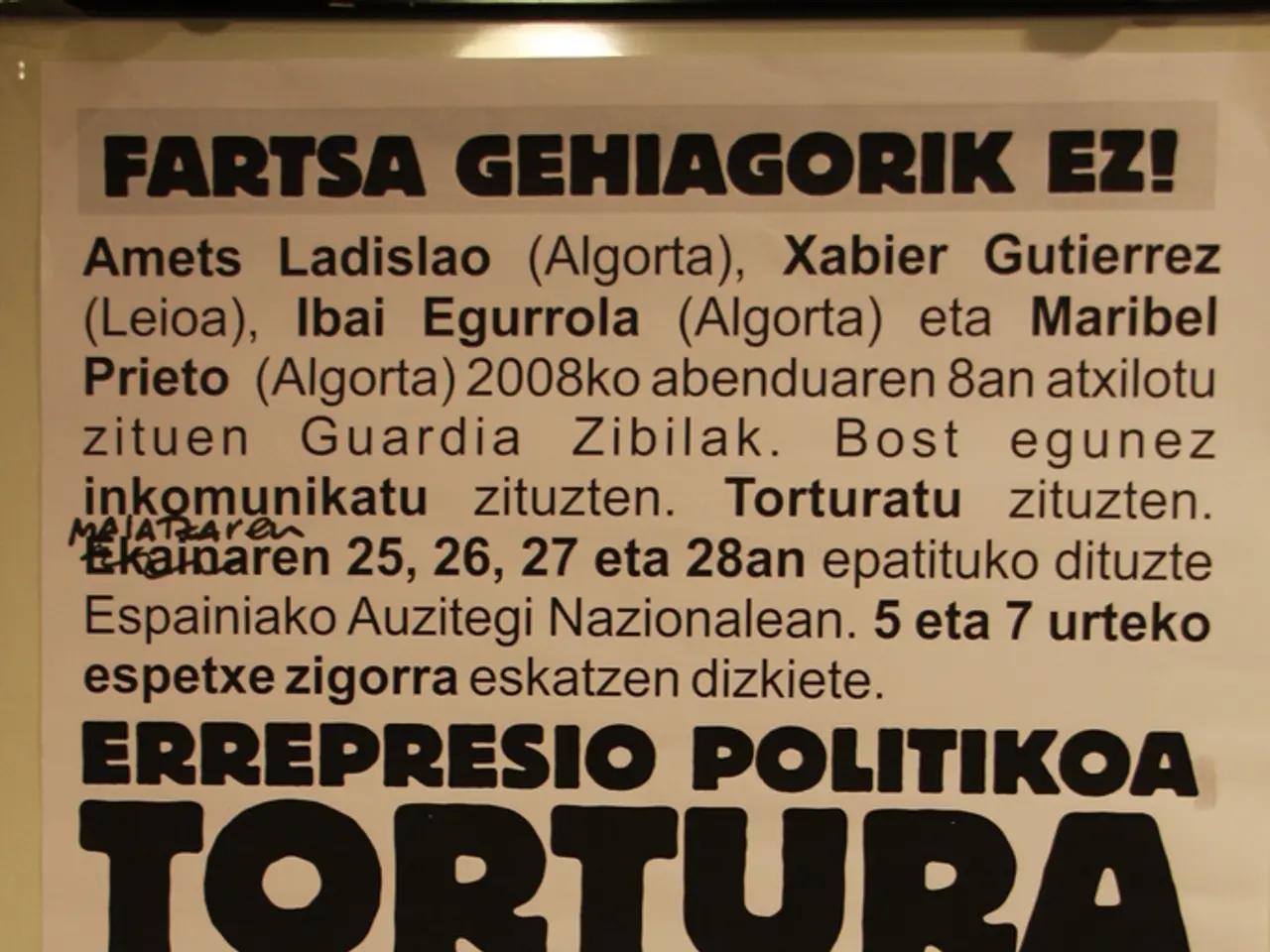American financial penalties imposed on timeshare con artists connected to crime syndicates in Puerto Vallarta
U.S. Treasury Cracks Down on Mexican Timeshare Fraud Linked to CJNG
The U.S. Treasury Department's Office of Foreign Assets Control (OFAC) has announced a series of sanctions against four Mexican nationals and 13 Mexican companies, allegedly involved in timeshare fraud in Puerto Vallarta. These sanctions are part of a broader campaign against the financing of terrorist and criminal activities from Mexico.
A History of Sanctions
The history of OFAC sanctions on Mexican nationals and companies linked to the Cártel Jalisco Nueva Generación (CJNG) timeshare fraud in Mexico includes a series of actions starting notably in 2021, with escalating measures through 2023, 2024, and culminating in a major round of sanctions in August 2025.
- April 6, 2021: OFAC designated two key CJNG figures, Carlos Andrés Rivera Varela and Francisco Javier Gudiño Haro, under the Kingpin Act.
- December 15, 2021: CJNG itself was designated under Executive Order (E.O.) 14059 by OFAC.
- June 2, 2022: Julio César Montero Pinzón, a senior CJNG associate linked with timeshare fraud and violent enforcement tactics, was designated under E.O. 14059.
- Between 2023 and 2024: OFAC took additional sanction actions, marking five total designations by August 2025 relating to timeshare fraud and involving over 70 individuals and entities.
- August 13, 2025: The most recent and significant action by OFAC imposed sanctions on four Mexican nationals—Julio César Montero Pinzón, Carlos Andrés Rivera Varela, Francisco Javier Gudiño Haro, and businessman Michael Ibarra Díaz Jr.—alongside 13 businesses linked to the timeshare fraud network operating mainly from Puerto Vallarta, Jalisco.
Scope and Modus Operandi
The fraudulent scheme operates through call centers in Mexico, targeting U.S. timeshare owners with scams such as exit, resale, re-rent, and investment frauds. Victims were charged advance fees and taxes under false pretenses of receiving payments owed from timeshare transactions. The CJNG supplements drug trafficking proceeds with alternative income sources, including this timeshare fraud, which has defrauded thousands of Americans.
The sanctions also target violent enforcement cells involved in assassinations of rivals and politicians in Puerto Vallarta, reinforcing CJNG’s control over the region and its illegal enterprises.
Losses
Although exact monetary losses are not detailed in the available sources, the scale is described as "large-scale" and involving "thousands of American victims" defrauded through this network. The complexity of the fraud and money laundering operations indicates multi-million-dollar illicit gains supporting CJNG’s broader criminal and terrorist activities.
Stay Vigilant
Treasury Secretary Scott Bessent stated that the sanctions are in line with President Trump's direction to eradicate the cartels' ability to generate revenue, including their efforts to prey on elderly Americans through timeshare fraud. The FBI believes these figures don't reflect the total losses, as many victims do not report scams due to embarrassment.
The Treasury Department's warning to current owners of timeshares in Mexico to stay vigilant remains relevant, as unsolicited purchase or rental offers that seem too good to be true are likely fraudulent. Fraudulent call centers pose as real estate agents, lawyers, or representatives of U.S. companies.
Summary Table
| Date | Action | Key Individuals | Scope | |----------------|---------------------------------|-------------------------|-----------------------------------------------| | Apr 6, 2021 | Kingpin Act designations | Rivera Varela, Gudino | Initial targeting of senior CJNG fraud figures| | Dec 15, 2021 | CJNG designated under E.O. 14059 | CJNG (entity wide) | Broad cartel-level sanctions | | Jun 2, 2022 | Sanction on Montero under E.O. 14059 | Julio César Montero Pinzón | Senior CJNG enforcement and fraud leader | | 2023 - 2024 | Multiple designation rounds | Various individuals and entities | Over 70 persons/entities linked to timeshare fraud | | Aug 13, 2025 | Sanctions on 4 nationals, 13 companies | Montero, Rivera, Gudino, Ibarra Díaz Jr. | Focus on timeshare fraud network in Puerto Vallarta |
These actions reflect a strategic and sustained U.S. Treasury effort to dismantle CJNG’s diversified revenue streams, particularly those exploiting Americans through fraud, and curbing violent cartel activities in Mexico. If further precise financial loss figures or additional historical sanctions detail is needed, those would likely be found in specific DOJ indictments or Treasury enforcement reports beyond the current publicly available data.
- The U.S. Treasury Department's Office of Foreign Assets Control (OFAC) has targeted cartels, such as the Cártel Jalisco Nueva Generación (CJNG), in their efforts to dismantle their diverse revenue streams that exploit Americans, particularly through timeshare fraud.
- In addition to drug trafficking, the CJNG supplements their income with alternative sources like timeshare fraud, which has defrauded thousands of Americans, resulting in a large-scale financial loss.
- Under the general news category, the OFAC announced a major round of sanctions in August 2025 against four Mexican nationals and 13 Mexican companies involved in timeshare fraud, as part of their broader campaign against the financing of terrorist and criminal activities from Mexico.
- The policy-and-legislation aspect is apparent in the U.S. Treasury’s strategic and sustained approach to address cartel activities in Mexico, as evidenced by a series of sanctions against Mexican nationals and companies linked to the CJNG timeshare fraud, starting in 2021 and escalating through 2023, 2024, and culminating in the significant round of sanctions in August 2025.








